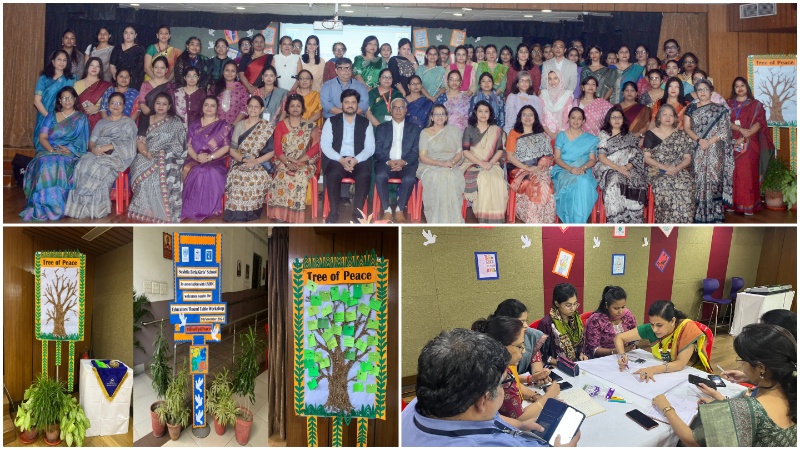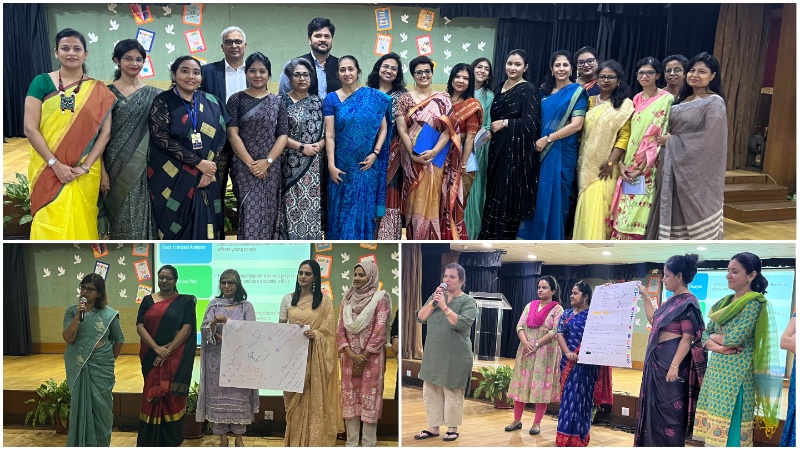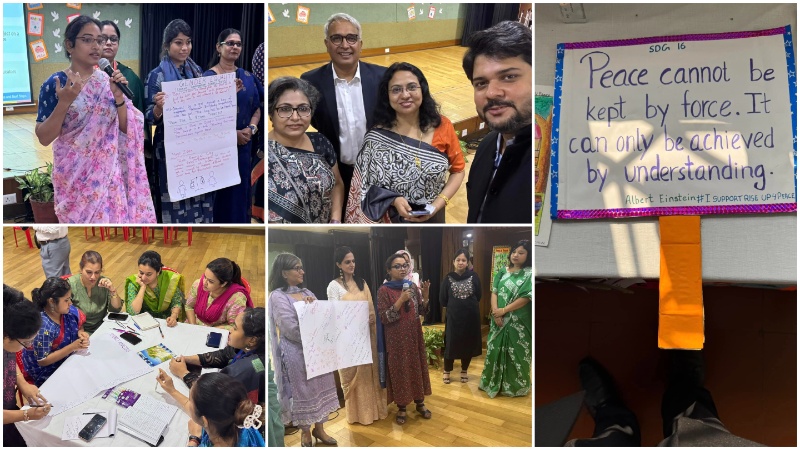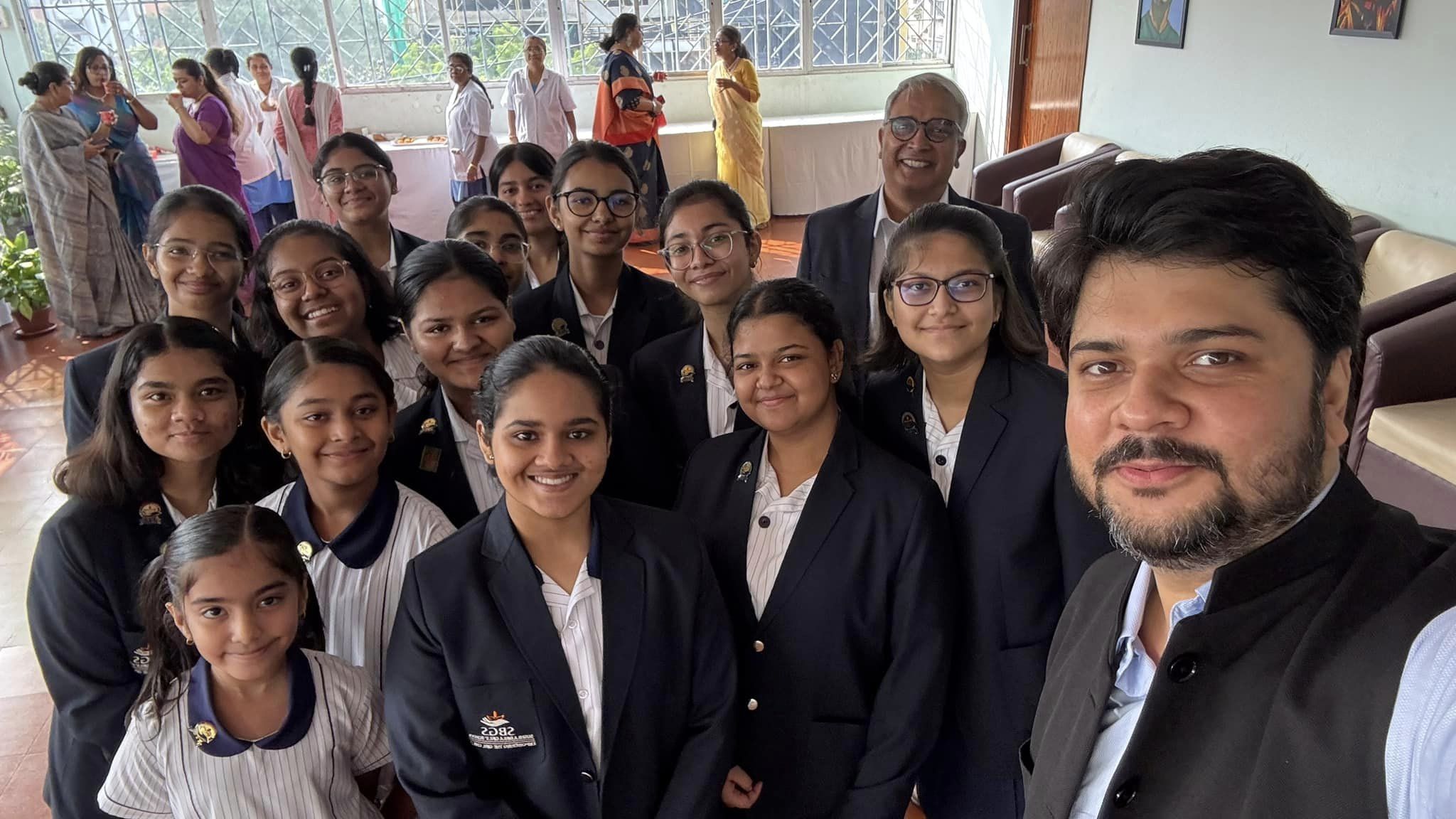India: UNODC's RiseUp4Peace unites Kolkata educators in building students’ resilience in classrooms to combat risky behaviors

Kolkata, India/09 November 2024: In an era of increasing social pressures, academic stress, and mental health struggles, students today face a growing number of vulnerabilities. Issues like peer pressure, gender-based inequalities, cyberbullying, and addiction-related dangers are taking a toll on young minds. These challenges can often leave students feeling isolated and vulnerable, making it critical for education systems to evolve in ways that help them build resilience and navigate the risks they face. Strengthening education to address these vulnerabilities is not just an option—it’s a necessity.
At the Sushila Birla Girls' School (SBGS) in Kolkata, over 70 educators from 18 schools in Kolkata joined hands with the RiseUp4Peace initiative to discuss how education can empower students to resist negative influences The wide-ranging dialogue was centered on promoting peace, health, integrity, and the rule of law, with a strong emphasis on integrating Sustainable Development Goal 16 (SDG 16) into classrooms.

“Education is the most powerful tool to combat the emerging challenges students face today,” said Dr. Satya Bhushan, Associate Professor at NCERT. “By integrating SDG 16, which focuses on peace, justice, and strong institutions, we are fostering an environment where students can become active agents of change, building resilience against risky behaviors. This is also reflected in India’s National Education Policy 2020.”
A students-led exhibition on SDG16 set the tone for the discussions, showcasing their creative and critical thinking abilities on a diverse set of issues: gender-based inequality to exploring the dangers of cyberbullying. “Seeing students so actively engage with SDG 16 is inspiring,” said Ms. Joyeta Saha, Coordinator at Sushila Birla Girls' School. “It shows the power of education to not only raise awareness but also equip students with the tools to act and resist harmful behaviors.”

Educators shared revealing insights on concerns affecting young minds--gender-based inequalities, online threats, excessive digital exposure, violent content and bullying. One of the key takeaways was the need to create safe spaces where students can express themselves and discuss sensitive issues openly.
Educators shared innovative practices to encourage this, such as the introduction of a “magic jar” where students could anonymously write down their thoughts and concerns. These reflections would then be addressed in class, allowing students to vent and gain clarity without fear of judgment. Another idea was to introduce a ‘role reversal day’, where students take on each other’s roles to develop empathy.

In addition to these practices, schools were encouraged to provide counseling support not only for victims but also for bullies, as addressing the root causes of aggressive behaviors can lead to positive change. “Education must not only focus on the victims of bullying but also on those who perpetuate it,” added an educator from another participating school. “We need to guide them toward understanding their actions and changing their behavior.”
Join the RiseUp4Peace initiative: t.ly/lh9T7
This activity contributes to SDG 4, SDG5, SDG 16 and SDG 17: https://sdg-tracker.org/